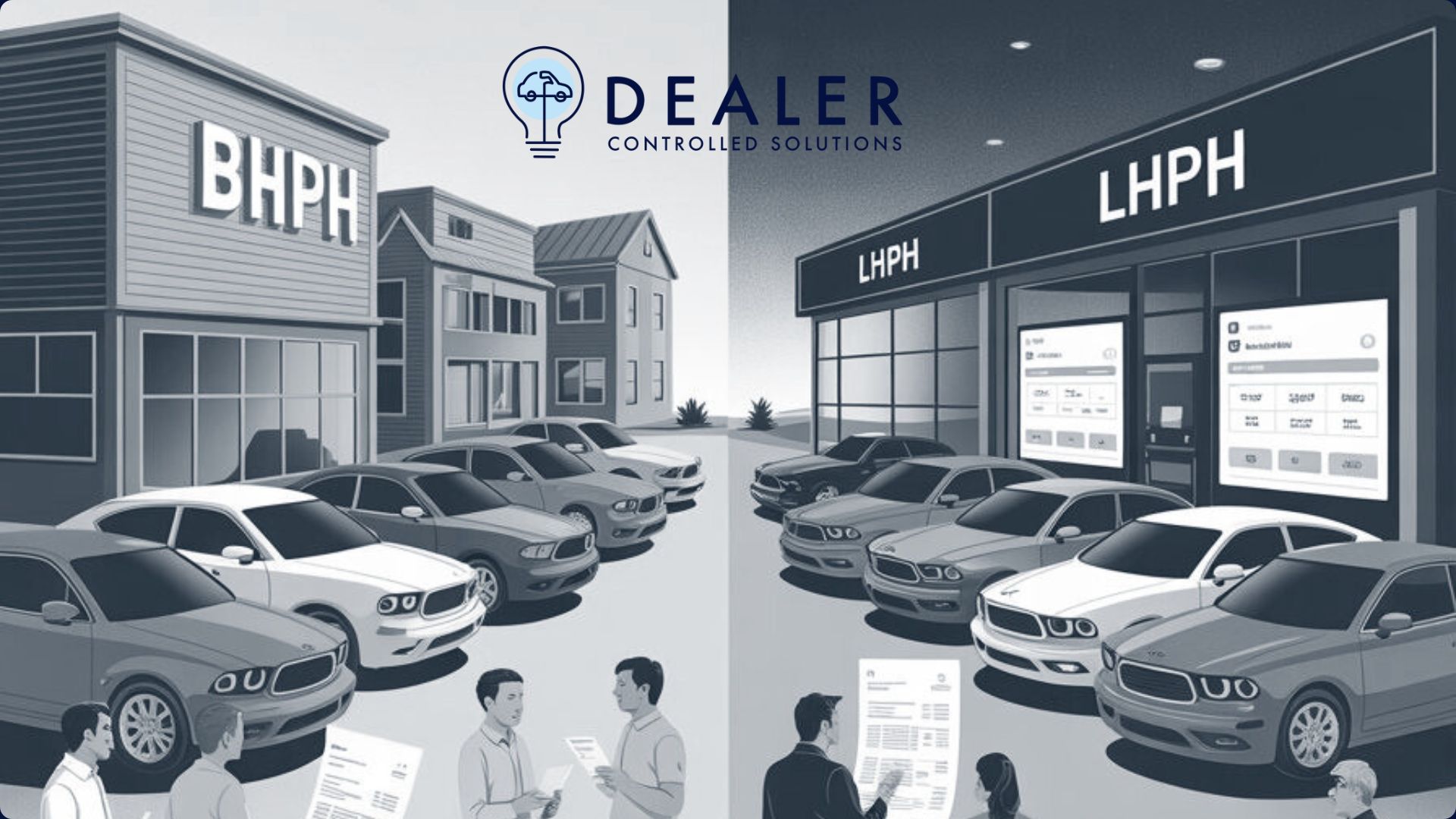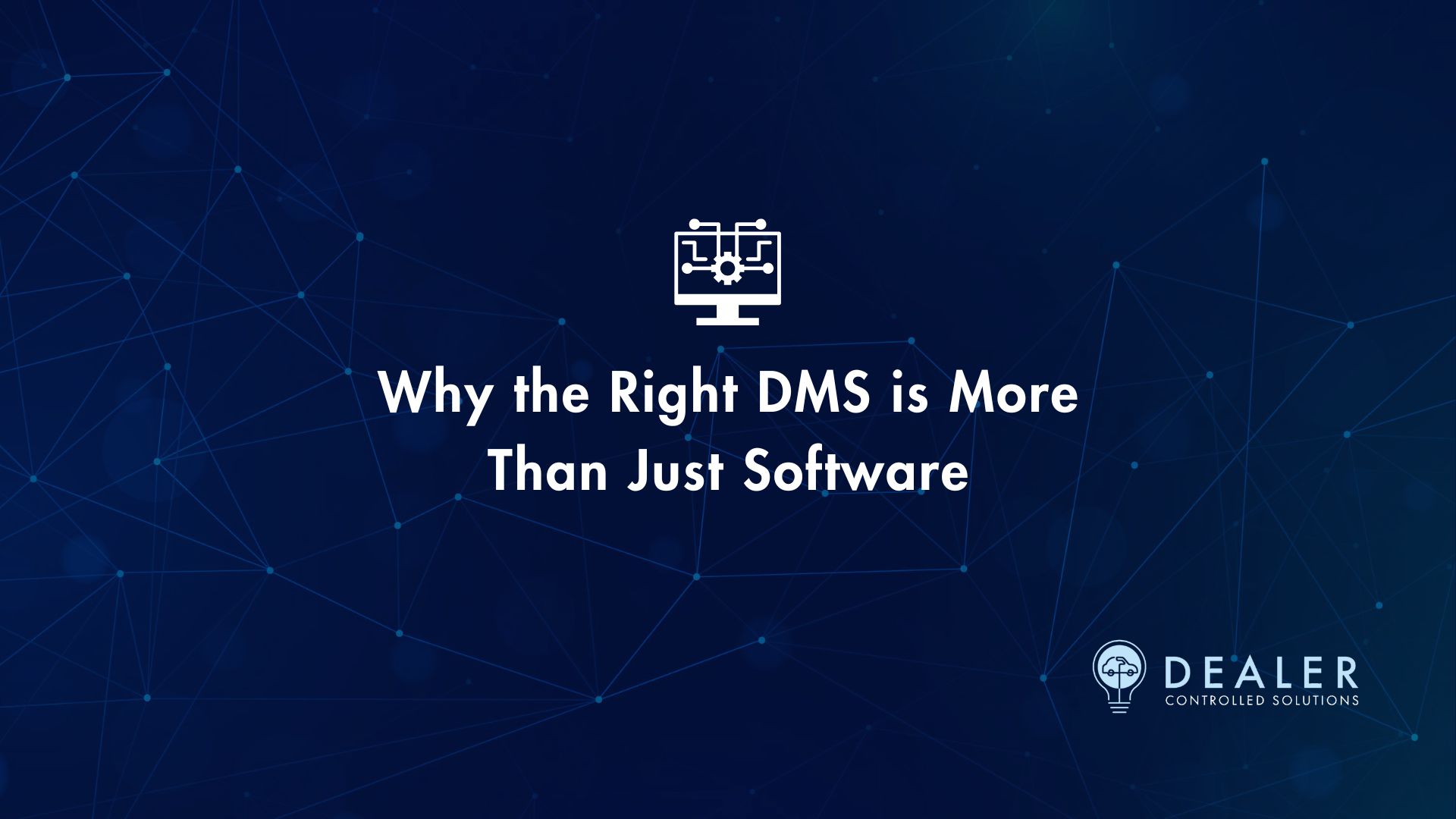
Independent Dealers today face tighter credit markets, higher vehicle costs, and more cautious consumers. That’s why many are bringing financing back in-house.
But there’s one key question every Dealer must answer:
Should you run a Buy Here Pay Here (BHPH) or a Lease Here Pay Here (LHPH) model?
Both give you control over the customer relationship and recurring revenue — but the financial structure, tax benefits, and long-term value differ in meaningful ways.
At Dealer Controlled Solutions (DCS), we help Dealers run both models through one flexible DMS platform. Here’s what to know before choosing your path.
Advantages
Challenges
Advantages
Challenges
LHPH changes how and when cash moves through your business:
BHPHLHPHRevenue TimingUp frontMonthly recurringSales TaxPaid in full at salePaid on each lease paymentPortfolio ValueLoan notesLeased assetsVehicle OwnershipTransfers to buyerRetained by dealerCustomer RetentionLimited post-sale contactContinuous relationship
By retaining vehicle ownership and spreading revenue across the lease, LHPH smooths cash flow and builds a longer-term asset base — especially when powered by the right DMS.
DCS’s platform automates the complex parts of lease and loan accounting.
It helps dealers:
Whether you choose BHPH or LHPH, DCS simplifies the compliance side so your team can focus on performance, not paperwork.
For many dealers, the best model is a hybrid — Dealer Controlled Leasing (DCL).
It combines the flexibility of LHPH with the community impact of BHPH, allowing you to:
DCL, powered by DCS, gives you the tools to manage every lease and loan through one intuitive DMS platform.
Both LHPH and BHPH can drive dealer profitability — the difference lies in cash flow timing, tax advantages, and long-term customer value.
With Dealer Controlled Solutions, you don’t have to choose one over the other.
Our system supports both models seamlessly, giving you the flexibility to grow, serve your community, and maximize profitability — all while keeping control in your hands.
Ready to see how DCS powers both LHPH and BHPH success?

.png)
.jpg)
DEaler Controlled Solutions
Dealer controlled solutions